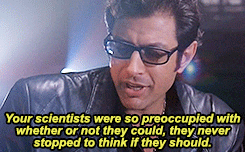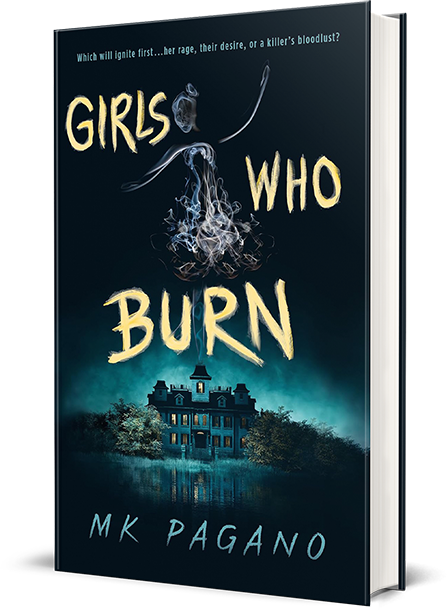On NaNoWriMo, AI, and Other Writerly Things
I told myself I was going to be less on social media lately, but truth be told, I’m always telling myself that, and I always get sucked back in.
Whether it’s politics or the latest writerly discourse, something will catch my attention and before you know it, I’ve spent time that I should have been spending doing more productive things getting myself embroiled in some debate. I really should know better by now.
But the latest discourse among the writerly is actually interesting and relevant and I have something to say about it, so that is what I’m doing here.
For the uninitiated: NaNoWriMo—the official organization of National Novel Writing Month, in which writers try to write an entire novel in the month of November—released a statement in support of AI. They were met with immediate backlash from the writerly community. Several prominent writers resigned from their board, everyone I know has deleted their NaNo accounts, and all the writing chats I’m in are in the process of finding or founding a new organization in which to fast-draft a novel.
For me personally, this isn’t a huge blow. I tried to NaNo a few times in the past and couldn’t do it. First of all, November is one of the worst possible months to do this in—it’s SO busy already, especially for those of us with kids. I’m convinced it was chosen for the alliteration and that’s all. Secondly, I find fast drafting, where you just write and don’t edit and the end goal is simply a higher word count, to be counterproductive to my process as a writer. (More on that here.)
But all writers are different, and for some, the fast-drafting method really works. So many people I know are mourning an organization they’ve loved and been a part of for years. Because for most of us, this stance by NaNoWriMo crosses a line, and here’s why.
NaNo states on its site that it’s “classist and ableist” to be opposed to AI. Since then, several disabled writers have condemned this statement, though I know others who have questioned it: do dictation services count as AI? What about services like Grammarly? Is it wrong to use all these things when writing a book?
This made me think more about how we’re using the term AI and I’ve come to a few conclusions:
We’re using the term AI too broadly.
It’s not as simple as “AI=bad.” Dictation services and services like Grammarly are AI, and they are not what people have problems with when it comes to writing books. (Though I do not use Grammarly; the one time I tried, it made my writing worse. It can’t grasp voice, an essential component in novel writing, which is why robots brains are inferior to human brains when it comes to creative writing, but more on that later.) AI is also doing other really good things for human beings, like detecting early breast cancer. There is a lot of good AI can do, when used in the right capacity.
When most people say they’re opposed to AI in art (I’m using “art” as a broad term to encompass any creative endeavor, including creative writing), they’re not talking about assistive tools; they’re talking about generative AI.
And yes, Generative AI being used to “write” novels is a problem.
Since coming onto the scene, I’ve seen more than one company touting software that can “write” your novel for you. “Have you always wanted to write a book but never had the time? Just feed our software a few ideas and it’ll spit out a fully written novel!” is the gist of some of the pitches I’ve been seeing.
This is a huge problem for a few reasons:
- It operates off stolen work. In order to train generative AI, in both writing and visual art, the technology has used copyrighted work that its creators never gave permission for it to use. In the US, authors are suing. In the UK right now, OpenAI is arguing in court that it has to be allowed to use copyrighted work or it won’t be able to function. If the product you made can’t work without literally stealing from people, that’s a problem.
- The environmental impact of generative AI is huge. As I understand it, the technology requires huge amounts of water to operate, and it’s having a huge impact on the environment. Not good.
- It’s taking jobs away from actual artists and writers. I’m not seeing this with novelists, yet (every time someone says yet with regards to all this, it sends chills down my spine.) But I am seeing it in the world I used to work in: content writing and copywriting. People who used to write blog posts for a living are having tons of issues getting work now, because companies are simply using generative AI to write blog post articles and website copy.Insert the argument that every new technology takes jobs away from the old, would we rather cars not be invented so the horse and buggy makers not be put out of work? But that’s not what this is. Generally when a new technology replaces an old one, that’s because the new one is better. The next problem with generative AI is…
- It sucks. I can spot a blog post written by AI a mile away. The language is weird and stilted and often repetitive, and feels soulless. Because it is. With visual art, it’s a little trickier for me, but once I notice the problems with an AI piece of “art,” I can’t unsee them. I’ve read some paragraphs written by generative AI “in the style of [insert famous author’s name here]” and while they are coherent, they’re not good. But more than that …
- Art has always been, and must remain, uniquely human. When we read a novel, when we look at a painting, we’re seeing something that was created by a human being for a reason. They have something they wanted to say, to communicate, to express. When I write books, sure, it’s to entertain, but it’s also because I want to say something in the course of my storytelling. When someone feeds an idea into an algorithm and it spits out a fully “written” “novel,” that “novel” can’t actually say anything—because it was created without any actual human being involved in the process. An idea is not what makes a book what it is. Ideas are the easy part; they’re cheap. The magic is in the making of the thing, in the choices we make with every word, every brush stroke, the hours we spend laboriously choosing between one path or another for our characters, the colors an artist decides on for this shadow, that blade of grass. A novel, a piece of art, is made of so many tiny human decisions, all come together in the end to create the final thing. It’s beautiful; it’s human; and it cannot be replicated by a robot.
So we have this technology that can only operate off stolen work, does so quite poorly, is taking away jobs, is taking away art from human beings, and is having a negative impact on the environment—for what? So people who can’t be bothered to sit down and put in the work to write or make art can say they “created” something? They didn’t create anything. They fed prompts into a robot. That is all.
To do anything other than condemn said technology is a problem. Which is why I side with all the writers severing ties with NaNo. If you wanted to support writers, support writers, not the technology trying to steal their work, their jobs, and devalue their art.
So what do we do about generative AI?

It feels as though these conversations were ones we ought to have been having ten years ago, before all this burst onto the scene. But I think what it comes down to now is:
We need regulation.
A little anecdote: I’ve stopped shopping for art on Etsy. I hate having to scan an image to figure out whether or not it’s made by humans—it’s way easier to spot AI writing for me. I’ve written to Etsy to ask for their policies on this. They haven’t responded.
If Etsy doesn’t want to outright ban AI art—and why would they, it makes them money—I wish they’d implement a rule where creators have to at least tag their art as being written by AI. Same with “novels” uploaded to Amazon—if they’re not going to ban the AI crap, at least label it as such.
But the problem is, these companies will never do this. All they care about is making money.
We need legislation on AI—I am closely watching the case in the UK right now—yet I don’t know how many politicians have this on their radar as an important issue. I am the first one to speak out against ageism, but there is something to be said for term limits for congress—there are politicians who are simply too old for this conversation to register for them at all.
So what can we do?
Until there is regulation regarding generative AI—and I badly hope there will be, even as I have my doubts—all we can do is at the individual level. Such as, stop engaging with organizations that endorse generative AI, like NaNoWriMo. As a consumer, we can refuse to purchase art and books made with AI. If you’re not sure if something is made with AI, ask. (If the creator doesn’t’ answer, that’s usually a yes.)
As for me, I will continue to write my books the slow, human way.
If you’re here for the first time, and want to support a human writer, my debut novel is out from Penguin Random House right now. GIRLS WHO BURN is an angsty, romantic, eat-the-rich, everyone’s-a-suspect thriller, and here are all the places you can get it:
- Order from WORD Jersey City
- Order from Asbury Park Book Cooperative
- Order from another local indie bookstore
- Order from Barnes & Noble
- Order from Target
- Order from Amazon
If you’ve already read it, another way to support me is to post about my book, tell your friends about it, request it from your local library, and leave a review! You can do so on:

